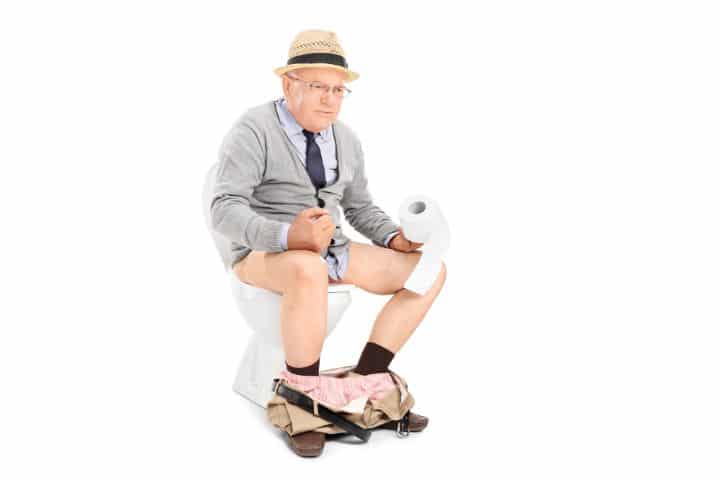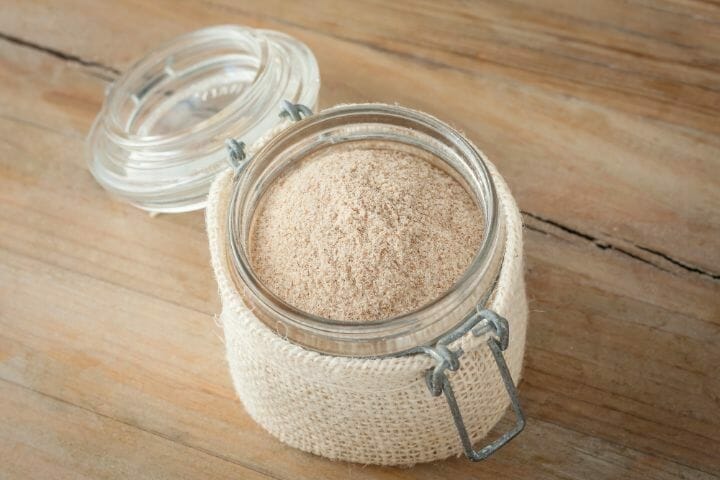Constipation is an issue many adults deal with on a regular basis as they get older. While the reason for this happening does vary from person to person: sometimes it is diet-related and not getting the right amount of nutrients while in other cases it could medications are taken for specific health reasons that cause issues with your digestive tract even though they’re helping with the medical condition.
This chronic digestion issue can make life really uncomfortable for seniors, and that can seriously disrupt the rest of their daily life and make everything they do really unenjoyable for them.
Being constipated can cause seniors to not want to eat, and it can make them very irritated and uncooperative – especially if you are there to help care for them. On top of that, for seniors who are living with Alzheimer’s or dementia being constipated can cause unwanted actions – like taking their clothes and briefs off at inappropriate times because they aren’t quite sure if they have to use the bathroom or not.
There are a few at-home remedies you can use to help your loved one get relief from constipation before going to see a doctor.
Contents
Why Do Seniors Suffer from Chronic Constipation, Though?
There are a few reasons seniors are more likely to suffer from chronic constipation than younger adults.
- The digestive system slows down and weakens as people get older. After all, it’s been working non-stop for your whole life, and eventually, it will just slow down. As this happens, it means food just doesn’t go through our bodies as quickly anymore and we don’t process it in the same way, which leads to constipation.
- Medical conditions like tumors, Parkinson’s Disease, or even thyroid issues can cause issues with your digestive system and eventually lead to constipation.
- Some pain medications (like Oxycontin, Percocet, and even Norco) can actually have constipation as one of their side effects. So if you’re taking these after surgery or even on a regular basis to manage your pain, this could be the reason you’re living with chronic constipation.
- There are also foods that cause constipation in the elderly.
How do you know if you or your loved one is constipated?
For some people, irregular bowel movements aren’t a big change as they have had that their whole life. What’s more important is whether there’s a noticeable change in what is normal for your bowel movements.
In general, if it has been more than 3 days without a bowel movement, then your loved one is likely constipated. After 3 days, the stool will become that much harder to pass so it becomes much more difficult with each day that goes by. Some additional symptoms of constipation might include
- Trouble/straining to have a bowel movement
- Small and/or hard stools
- Feeling like everything didn’t come out/you still have to have another bowel movement
- Swollen abdomen or abdominal pain
- Vomiting
So, how do you relieve constipation at home? Here are a few steps you can take to make sure you avoid constipation as much as possible.
You may also like Best Probiotics for Bloating
Choose the Right Foods
There are certain foods that help with digestion and will keep your bowel movements regular. You will want to incorporate these foods into your diet, as much as you can, on a regular basis.
By making sure you consume these foods – on a regular basis – you will likely find that you’re more comfortable with less bloat, and your digestion is back to normal. Think about adding these foods into your diet
- Whole grains (especially foods that contain bran)
- Vegetables
- Dried Fruit
- Nuts
- Beans
- Foods with a high-fiber content
In addition to making sure certain foods are added to your diet, it’s important to limit your intake of others as they can actually cause constipation and bloat. As much as possible, try to avoid foods like
- Cheese
- Unripe bananas
- Chocolate
- Tea
- White bread, rice, and other grains that have been highly processed
Drink Enough Water
Most people think that they drink enough water, but many actually do not get enough on a daily basis. Drinking water will keep your body hydrated, and that in turn keeps its vital functions and organs working and moving.
On top of that, when the body is properly hydrated the water will be moved to your digestive tract where it will be absorbed by your stool. Stool that has more water in it will be much easier for your body to pass and eventually expel.
For people who are constipated, their stool is often very hard and lacking hydration – and that makes it even harder for people to get back to being regular after being even slightly constipated.
You may also like Best Protein Bars For Seniors
Exercise Regularly
When we get the body moving, the body itself will keep moving. Studies have shown that those who experience slight constipation on a regular basis really benefit from regular exercise – even vigorous exercise.
If you are able to exercise – because being constipated can make anyone really uncomfortable and not feel like moving or exercising – this can be a big help in getting your digestion flowing again and help you have a bowel movement.
Additionally, it has been found in many cases that the more vigorous the exercise the more likely it will be to help get things moving. If you can’t participate in this kind of exercise, that’s ok – don’t hurt yourself working out trying to relieve yourself of constipation, it’s not worth it. Going for a brisk walk on a regular basis will help to get things moving and you might even feel the sudden urge to go right in the middle of your walk.
Establish a Bathroom Routine
It may sound slightly juvenile, but if establishing a bathroom routine can actually help your body avoid constipation. Try – as much as possible – to go to the bathroom at the same time every day so that your body gets used to the action of having a bowel movement.
While we may think that our body cannot tell time, it actually can. And the routine of going to the bathroom at the same time, and having a bowel movement, will keep your body used to do it so it’s more likely to feel like second nature.
That being said, no one should ever resist the urge or the feeling to go to the bathroom if it suddenly comes up. If you suddenly need to go, make sure you don’t deprive your body of that.
You may also like Best Probiotics for Lactose Intolerance
Add in a Fiber Supplement
There are many different supplements you can add to your diet that will give you an extra boost of fiber – especially if your diet is lacking a little bit in that area.
Most of the supplements available today will be completely soluble in water – or any drink – so there won’t be any noticeable taste or gritty consistency when you drink it.
One thing to note is that if your doctor believes your constipation is caused by a nerve or muscle problem, you may be asked to watch your fiber intake and actually decrease the amount you consume. Instead, they may give you a medication that adds water to the colon and therefore softens the stool.
Use Laxatives Sparingly
There are some over-the-counter options you can get that will act as a laxative, but those should be used sparingly.
These options are meant for short-term relief, and should not be used on a regular basis to keep your bowel movements regular. With too frequent use, they could cause dependence and that will make the end result so much worse when they aren’t in your system any longer.
Before adding in a laxative, it might be best to check with your doctor and just make sure that this is safe for you to do. If you are on other medications, this could interact with them or it could cause an issue you didn’t know about previously. As long as your doctor is alright with you using an over-the-counter laxative, you should then follow the directions on the bottle.
You may also like Meal Delivery Service for Seniors
Talk to Your Doctor
No matter how many at-home remedies you try, there could come a time where they just don’t work and you’re still suffering from constipation.
At this point, you might need to talk to your doctor about an alternative option for helping to relieve your constipation. When you’ve already used all the at-home remedies and over-the-counter options – and it’s still not working – then it’s time to make an appointment with your doctor as there could be other things or conditions happening that are causing constipation.
In some extreme cases, medical and surgical intervention could be required to clear out blockages. A blockage could happen when a person has been constipated for such a long time that the stool is just too hard to pass and so it gets stuck.
By keeping a regular diet and trying to exercise, most people are able to relieve bouts of constipation at home and without any kind of medical intervention. There could come a time, though, that what you’re trying at home just isn’t working and you need to talk to your doctor. It’s important you don’t put this off as it could just make things that much worse.
If you have concerns about this, contact your doctor to set up an appointment as soon as you can.




